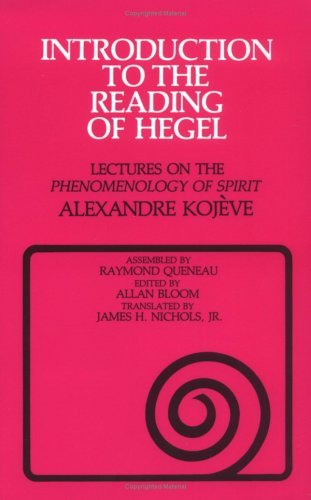What do you think?
Rate this book


287 pages, Paperback
First published January 1, 1947
Generally speaking, there is a tendency to underestimate the difficulties of satisfaction and to overestimate those of omniscience.
One can say, then, that Being is the being of the concept “Being.” And that is why Being which is (in the Present) can be “conceived of” or revealed by the Concept. Or, more exactly, Being is conceived of at “each instant” of its being. Or else, again: Being is not only Being, but also Truth—that is, the adequation of the Concept and Being. This is simple.
Let us consider a real table. This is not a Table ‘in general,’ nor just any table, but always this concrete table right here. Now, when ‘naive’ man or a representative of some science or other speaks of this table, he isolates it from the rest of the universe: he speaks of this table, without speaking of what is not this table. Now, this table does not float in empty space. It is on this floor, in this room, in this house, in this place on Earth, which Earth is at a determined distance from the Sun, which has a determined place within the galaxy, etc., etc. To speak of this table without speaking of the rest, then, is to abstract from this rest, which in fact is just as real and concrete as this table itself. To speak of this table without speaking of the whole of the Universe which implies it, or likewise to speak of this Universe without speaking of this table which is implied in it, is therefore to speak of an abstraction and not of a concrete reality.
The fact is that, in order to use the word ‘John’ correctly, I do not need to know all about John, but only enough to recognize him. No doubt he has relations, near and remote, with everything in the universe, but he can be spoken of truly without taking them into account, except such as are the direct subject-matter of what is being said. He may be the father of Jemima as well as James, but it is not necessary for me to know this in order to know that he is the father of James.